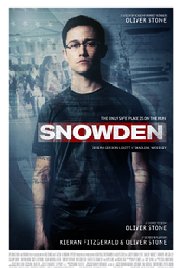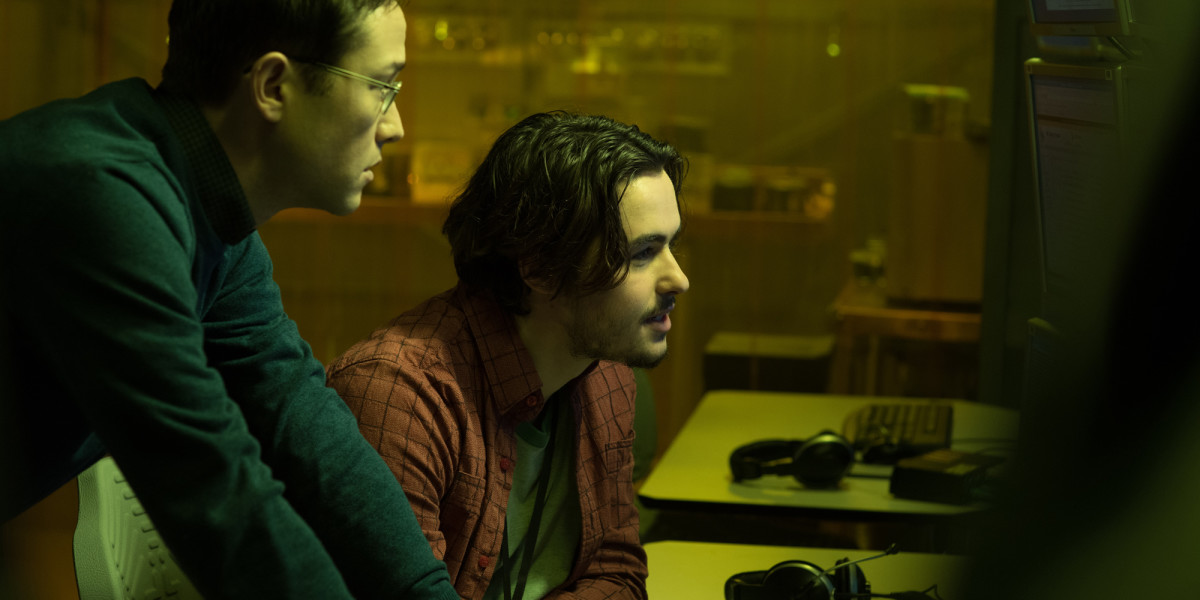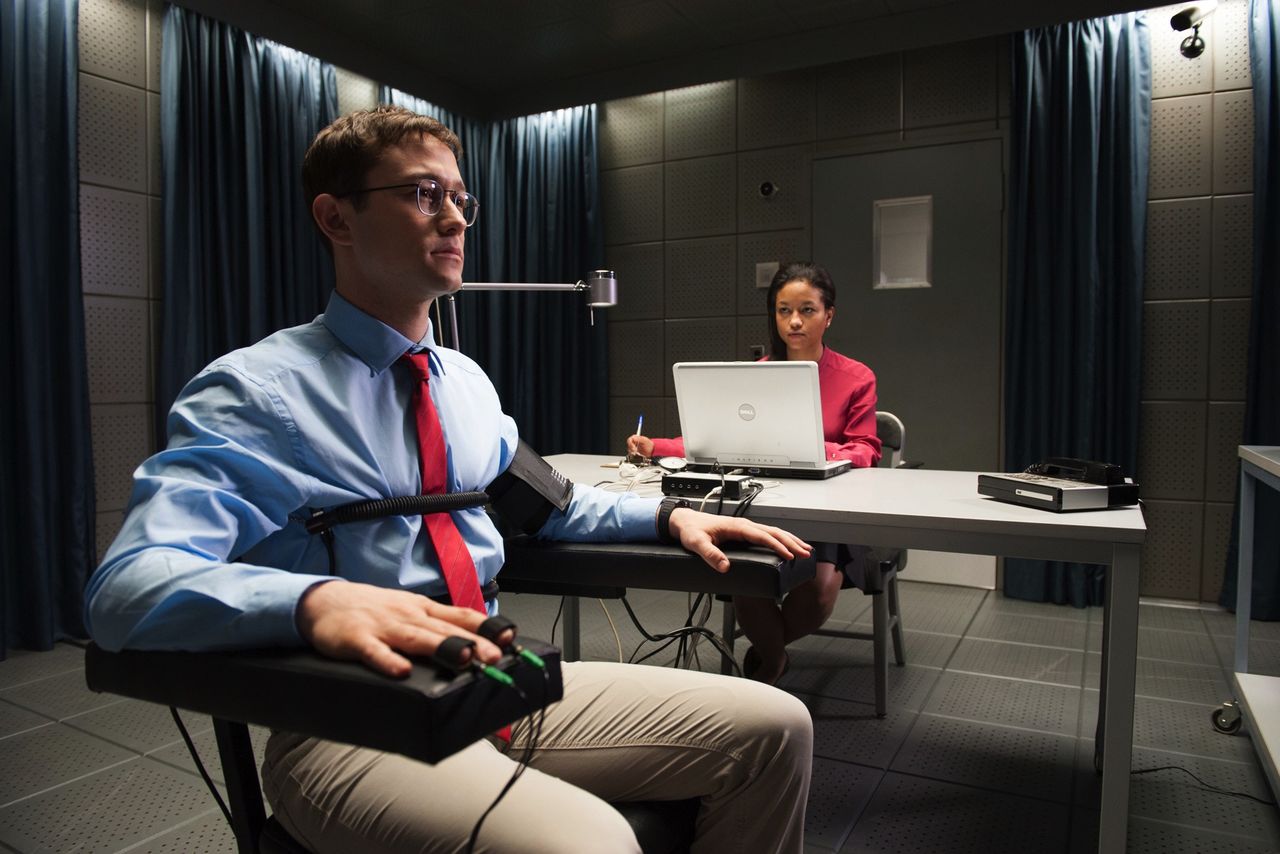 Director Oliver Stone/2016
Director Oliver Stone/2016
The name Edward Snowden should be very familiar with most people who pay attention to world events. In 2013, Edward Snowden turned over highly classified documents to the U.K.’s Guardian newspaper to expose the United States’ NSA programs for illegal surveillance on people around the world, especially American citizens, without just cause, or court approval. Snowden, having met journalists, and documentary filmmaker Laura Poitros, in the Mira Hotel in Hong Kong, eventually came to find asylum in Russia, after attempting to flee to Latin America when his passport was revoked by American authorities, essentially stranding him in Russia where he now resides.
Many questions have surrounded Snowden and his actions. Was he a hero in exposing the overreach of the U.S. government, with the admirable desire to protect American’s right to privacy? Was he a traitor because the leaked documents exposed aspects of the U.S. intelligence gathering system which tipped off our enemies, possibly causing harm to American citizens and interests worldwide? These are all questions that are evaluated in the new film Snowden. But for me, the larger question was not the ones raised about the subject of the film, but it was how controversial filmmaker Oliver Stone would address this very current tale, and would it serve as a further takedown of the corrupt U.S. political system and military industrial complex he has skewered in films such as Platoon, JFK, Born on the Fourth of July, and The Untold History of the United States?
Much to my surprise, Snowden, the film, is a reasonably balanced take on the title character from a script by Oliver Stone and Kieran Fitzgerald based on the books by Anatoly Kucherena and Luke Harding. Rather than getting bogged down with the technical nature of computer surveillance and ratcheting up the drama by focusing on specific documents that were leaked, Stone opts to simply tell the story of a man who came from a family with a history of being dedicated to serving the United States, who came to believe that what his beloved country was doing was simply wrong.

In playing it safe, Oliver Stone may have subversively provided us a film that will advance the discussion he probably wants us to have, and that is asking at what price to our personal freedom are we willing to yield our rights in the name of security?
Joseph Gordon-Levitt (Inception, Don Jon) plays Edward Snowden and does a very close take on the real-life man, as evidenced by an interview following the screening featuring Gordon-Levitt, Oliver Stone, actress Shailene Woodley, and Edward Snowden who appeared live via satellite from Russia. The interview following the film gave me a better look at the real Snowden. It allowed for me to do an interesting character study between the man who was talking in front of me in the interview, and the dramatic portrayal by Joseph Gordon-Levitt I had just witnessed in the film.
The film starts in Hong Kong as a very nervous Edward Snowden is meeting with documentary filmmaker Laura Poitros (Melissa Leo-Prisoners, The Fighter), and The Guardian’s U.S. reporter, Glenn Greenwald (Zachary Quinto-Star Trek). Eventually joined by fellow Guardian reporter Ewen MacAskill (Tom Wilkerson-The Best Exotic Marigold Hotel, The Exorcism of Emily Rose), Snowden begins to verify the story details to prove the authenticity of his report and of the documents he is turning over. Through this, we follow his story in flashbacks until catching up to his daring escape from Hong Kong once the documents are made public.

Surprisingly, Oliver Stone opts to ground this story in the relationship of Snowden and his girlfriend Lindsay Mills (Shailene Woodley-Divergent, The Fault in Our Stars) who he meets in Washington, D.C. after going to work for the C.I.A. following his honorable discharge from the military resulting from an injury during training. Young Snowden is seen as a patriot, and is teased for being a conservative by Mills who promises to lead him to the liberal dark side. They move to Geneva, Japan, Baltimore, and eventually Hawaii as Snowden takes different assignments with various agencies and private companies with government connections. Oliver Stone shows the toll that Snowden’s job of dealing with secrets and classified intel has on Edward’s health, and ultimately on his relationship with Lindsay, which helps set up the reason for taking the actions that he ultimately did.
Not surprising, Stone has some very unkind things to say about George W. Bush’s administration’s handling of surveillance. What is surprising, is the depths to which he goes to savage the Obama administration for continuing these programs, and in many ways expanding them. To make sure that the film stays relevant past the 2016 elections, and despite being a tale taking place in 2013, Stone makes sure he puts up on screen the thoughts of both Sec. of State Hillary Clinton and Donald Trump on what they think of Edward Snowden and what he did, using past interviews and clips to drive home the point. Whoever wins the election this year will still have to continue to deal with the fallout of Snowden’s documents leak and the implications it will have on national security for whoever is our nation’s next commander-in-chief.

While the film is extremely interesting, and well-shot, it is almost too balanced to be as dangerous as the subject matter or the reputation of the controversial director. Even as the U.S. agents are moving in on Snowden in Hong Kong, we never really feel the danger of the moment. Instead, we are left asking a lot of good questions about what it means to take an action that you feel is right, even when you know that it will cost you everything to do so.
One interesting item that is brought up in the film has to do with why Snowden never approached his superiors to share his concerns with the programs he saw our government engaged in, in the name of fighting terrorism. Why didn’t he try to reform the system from the inside? Snowden himself has spoken about this, but in the film, we are given several clips from interviews on 60 Minutes, and other shows, of previous whistle-blowers whose lives were ruined for speaking out. It is these instances that caused Snowden to think that he couldn’t simply try to file a grievance, but needed to be a true whistle-blower who didn’t expect to receive any kind of protection. He has claimed he wants no compensation or personal reward for his actions, but to see the country he loves find its moral bearings.

During the interview following the film, one of those whistle-blowers, Thomas Drake, who tried to warn against many of these programs prior to Snowden’s actions, was present in the live audience in New York (where the interview took place) and was thanked publicly by the actual Edward Snowden for taking an action that gave Snowden the courage to do what he did. It was a heartfelt moment to watch both men watching each other on opposite sides of a video monitor, and seeing the graciousness of Thomas Drake who suffered much, for being recognized for standing up despite the personal toll on his life.
Snowden is full of strong performances, and the film is guided by the skills of a veteran filmmaker, but it is not the tour de force that it should have been given the controversial nature of the actions Snowden took, or the director’s previous film work. It is a film, however, that will lead to serious conversations that are much needed in our current times. The fact that it provides a very humanizing portrait of this man, rather than the easy caricature other films seem to take when covering current event stories is refreshing and will enable one to sympathize with Snowden’s basis for his actions, even if they disagree with the actions he took. In playing it safe, Oliver Stone may have subversively provided us a film that will advance the discussion he probably wants us to have, and that is asking at what price to our personal freedom are we willing to yield our rights in the name of security?



